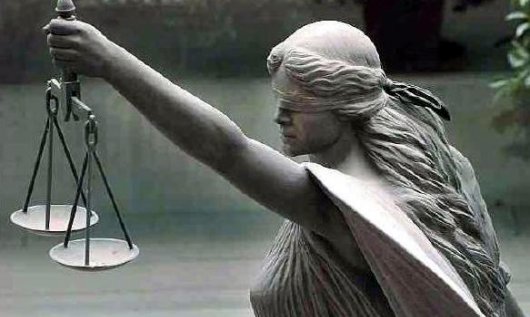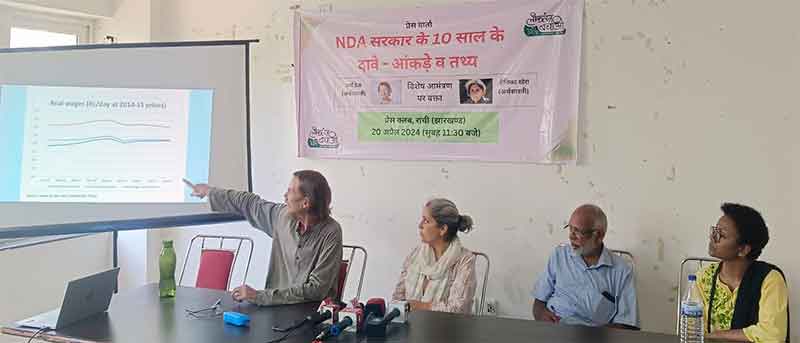
One of the toughest tasks I had to handle in my long career as a banker was handling the recalcitrant defaulters who made us literally beseech and supplicate before them when they refused to pay up the loan. I had to make regular appearances in the witness box whenever we filed a law suit against any tough loan defaulter. The experience followed a common narrative. Lawyers thrive on promises and defaulters’ prefer paying heavy fee lo lawyers rather than honouring their debts.
It is strange that repayment ethics, so deeply ingrained in Indian culture, have been made foul words. The sanctity of repayment, no matter how deceitfully the debt was contrived and how cruel the costs, has been drilled into the Indian consciousness since the time of Manusmruti. Manu listed eighteen main categories of law for the king to decide on. Of those, wrote Manu, “The first is non-payment of debts.” Manu held: “By whatever means a creditor may be able to obtain possession of his property, even by those means may he force the debtor and make him pay.”
In the hallway of the court where I made my first testimony in a loan default case, a diverse crowd of rich, poor and middle-class had begun to gather. I entered the courtroom and sat just below the judge’s bench. Four dirty fans, on long stems, circled slowly above my head, with the subdued hum produced by low voltage. Lawyers wearing their traditional black-and-white costumes came and went from the courtroom, bowing according to custom as they entered, filling several rows of chairs behind the front row, where they would wait all day long for their case to be heard. Light green folders and crowded dockets were everywhere—stacked high on the judge’s desk, piled on the litigant’s table, stuffed into shelves on the wall. A long bulb glowed dimly in the hall, threatening to switch off anytime, casting surreal shadows on the walls.
My encounter in the witness box left my ideals evaporating. As I took my place in the dock, my lawyer, pulling on his robes, hurried into the court. He saw me and raised his thumb. A dizzying number of exhibits—notices, bank vouchers, signed cheques correspondence—were placed before me as my lawyer and the defendant’s lawyer sparred over legal issues.
The lawyer defending the defaulter proceeded to grill me in near-perfect theatrical slang with a cannon fire of questions: “Did the borrower sign in your presence”; “Were the contents of the documents explained to him”; “Can you produce any witnesses in support of your argument?” He tried to play a smart game and questioned every simple line of logic. Painfully aware of how words skate over and around truth, never having quite enough nuance to grasp it completely, I contested him equally forcefully, testifying in blunt terms. At stake was a loan of Rs.25,000 and the lawyers were battling as if the country’s sovereignty was at stake. He was gesticulating with ferocious gravitas. He reminded me of the famous aphorism: If the facts are against you, pound on the law. If the law is against you, pound on the facts. And if both are against you, pound on the table!
My lawyer couldn’t respond suitably. He kept skirting around the law. His usual refrain would be, “Your Lordship, this is a leading question.” It appeared his strategy was to wear out the defending lawyer or elicit some favourable response from the Magistrate, who kept on overruling the objections. The judge pronounced: “The court found no violations.” Perhaps an individual judge may be biased, I thought at the time, but the judicial system as a whole can’t ignore both the law and self-evident facts. My lawyer tried to inject some hysteria in the courtroom in order to impress me. He would keep banging the table while making his point. This is not surprising. The law deals with the same sort of questions as politics.
I tried to reason with the Magistrate that, if I had known that each loan could generate a thriving cottage industry of litigation, I would have moderated my enthusiasm and sense of commitment. I was animated with a passion for helping the poor and now I found that I had become trapped in a multiple helix in chasing this vain chimera. My humble, polite voice chimed oddly amid the thundering perorations of top-rank lawyers. The Magistrate seemed to have been offended by my remark, as if he sat on Vikramaditya’s throne and lesser mortals like me dare not use his court for moral philosophizing. In front of me sat the philosopher king, the flag-bearer of the cloistered virtue that is justice, holding the court in its majestic grandeur, and I was a supplicant who had the temerity to dispense his own version of wisdom.
He was conscious of being a deity in his own small kingdom in which he exercised unbridled authority. He appeared quite patronizing, dispensing justice the way a modern saint dispenses benedictions. For him everyone who entered the witness box was someone who was arraigned before his stern tribune of justice. The judge grimaced at my audacity and his mouth was a straight, grim line, as if to say, “We know the law better.”The regulations of the judiciary are broad enough to be used punitively by small-minded judges. Earlier in the day, a colleague of mine was hauled up in a similar fashion. It was a field day for the Magistrate, slamming people from the banking fraternity, to the undisguised delight of the chattering lawyers.
Standing in the hallowed precincts of the temple of justice, I shuddered, wondering whether the Magistrate would frame me for lowering the dignity and prestige of the court. Looming in front of me was the lofty majesty of law in whose shadow stood a puny creature. I felt if the loan defaulter was the king and I was the supplicant.
The Indian legal system is quite well known for its Dickensian delays. Despite repeated proclamations from the throne of the government and the lofty pedestals of courts for dispensation of inexpensive and timely justice, the legal system continues to be dear and mired in interminable delays. The cost to Indian society of its sclerotic legal system is steep. .
Moin Qazi is the author of the bestselling book, Village Diary of a Heretic Banker .He has worked in the development finance sector for almost four decades .He can be reached at [email protected]










































